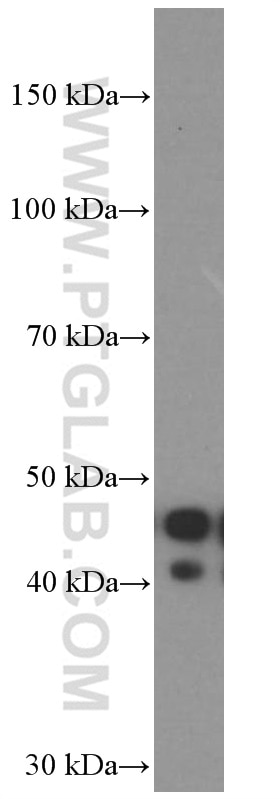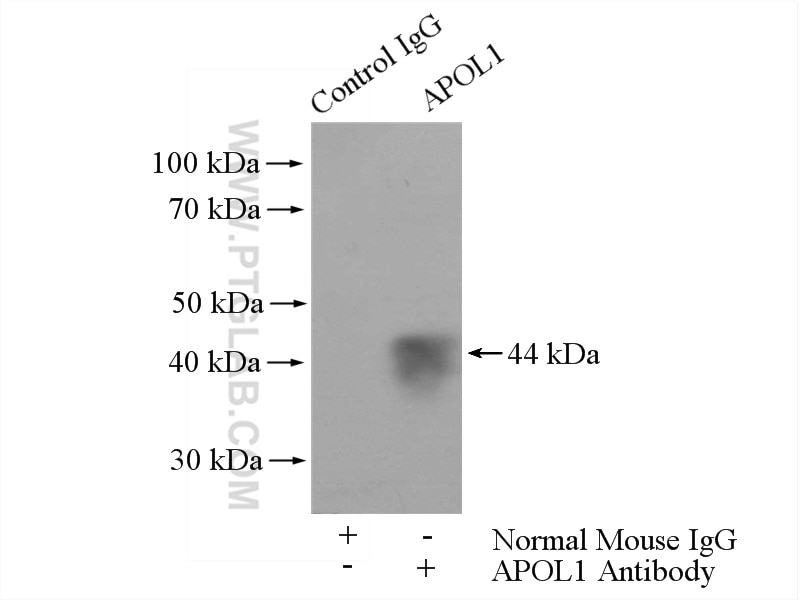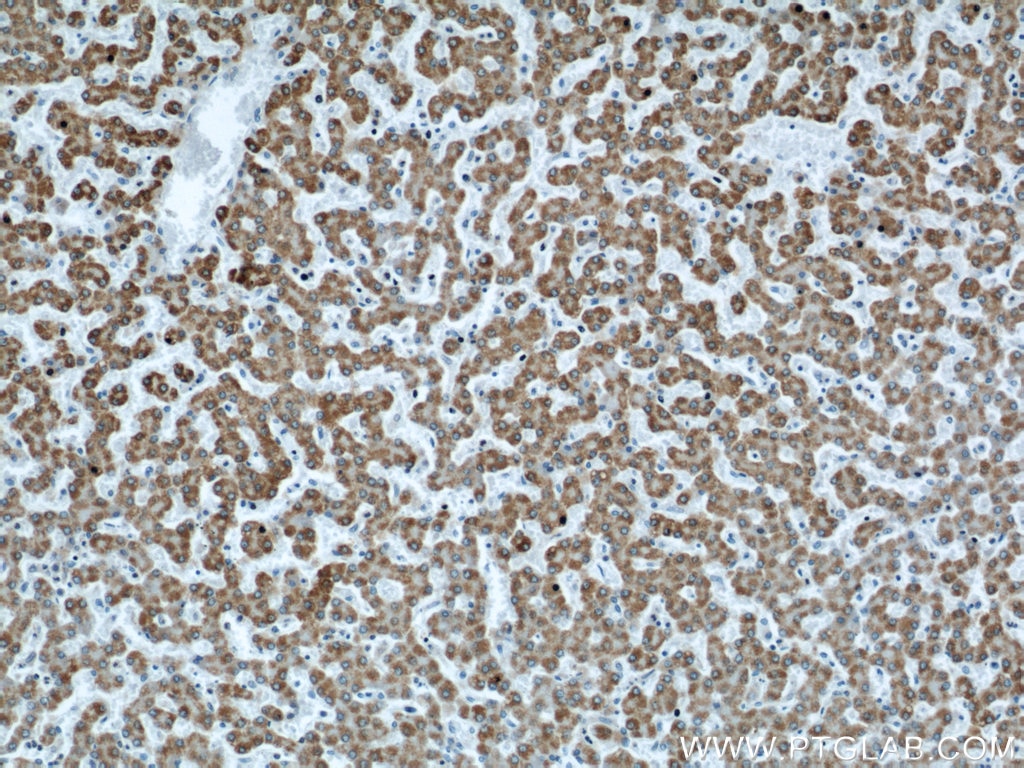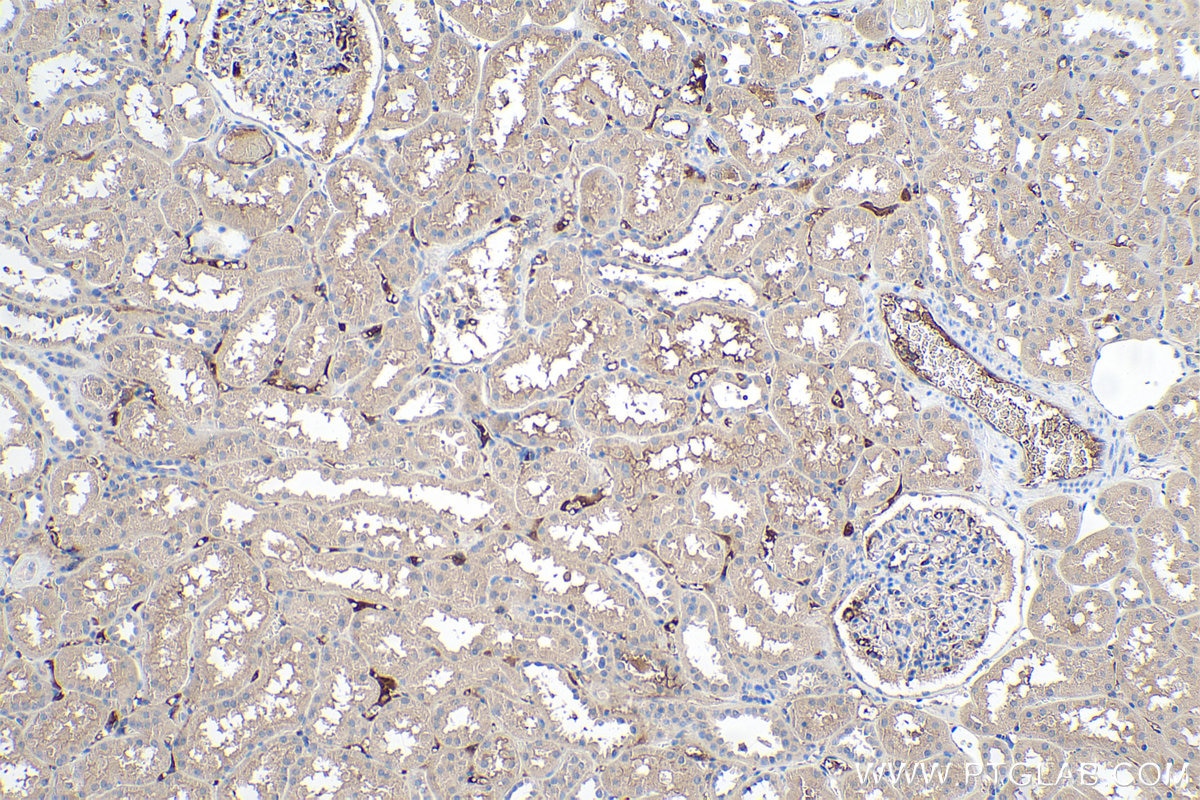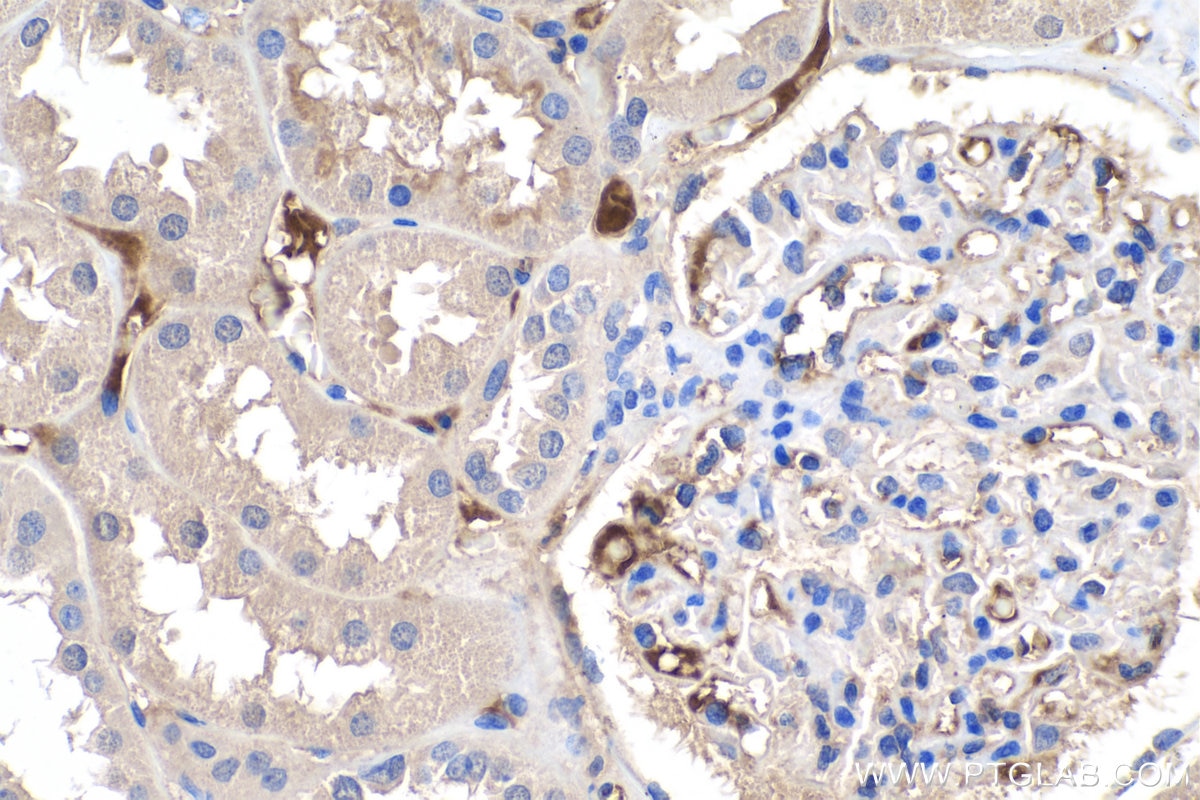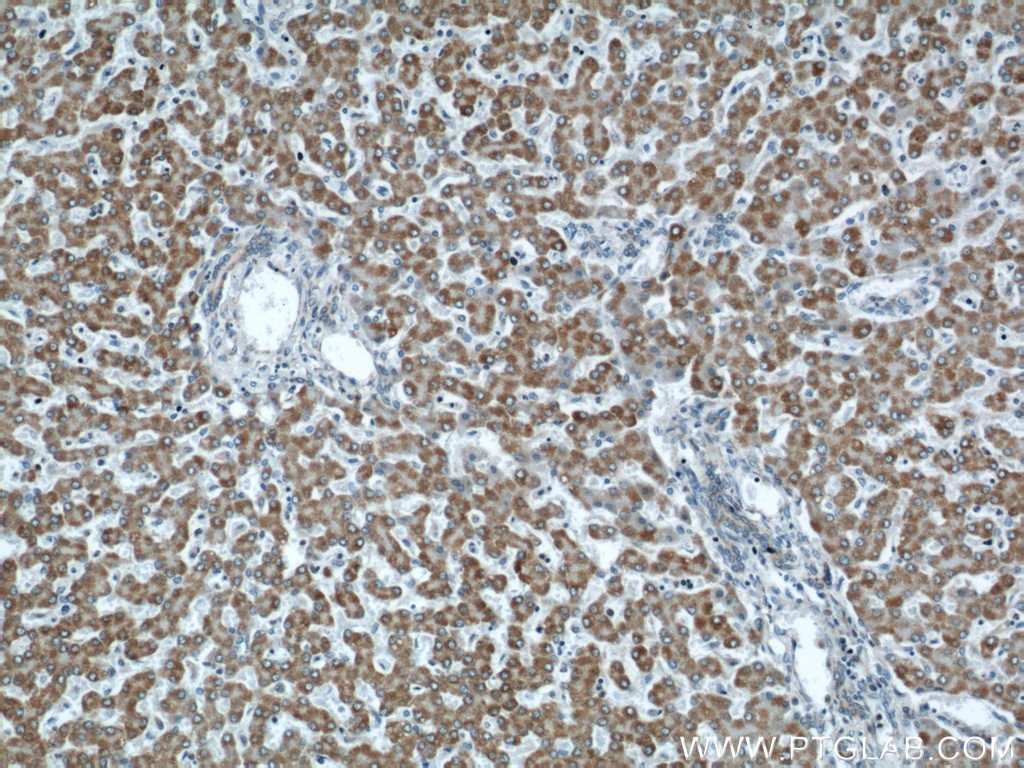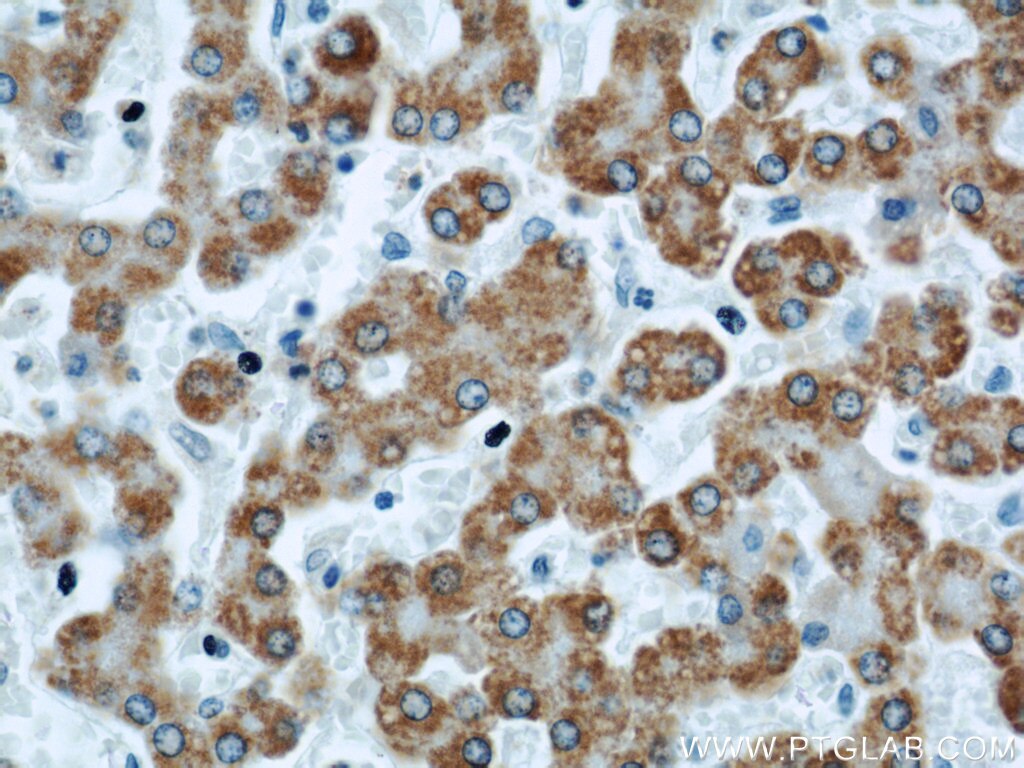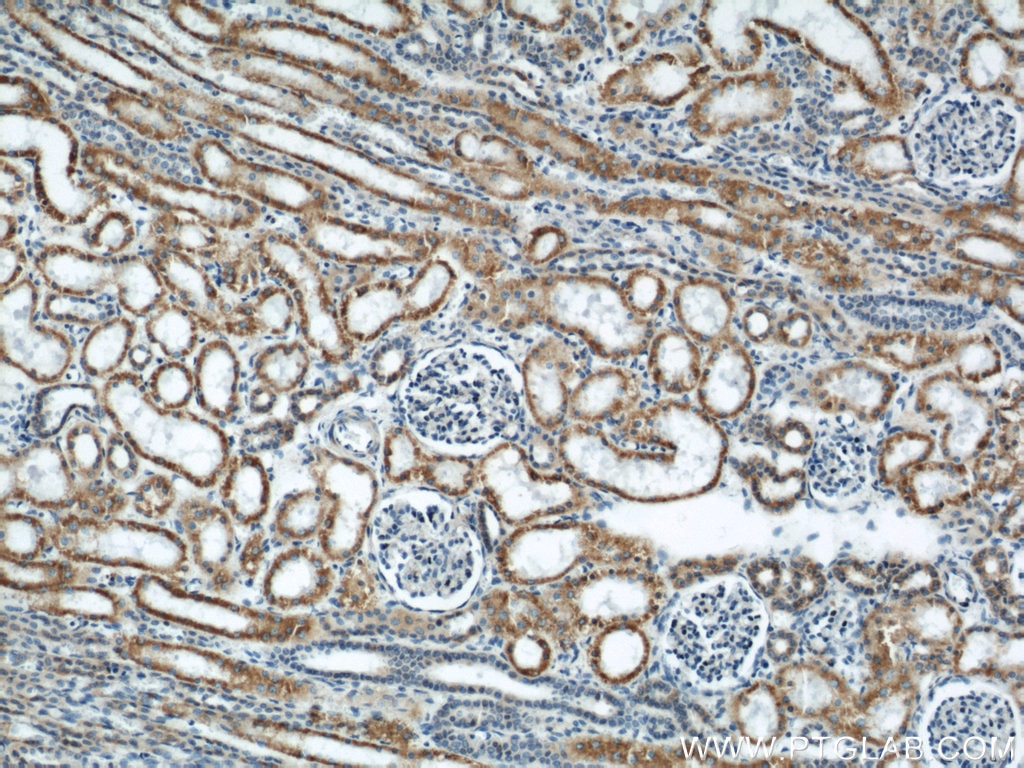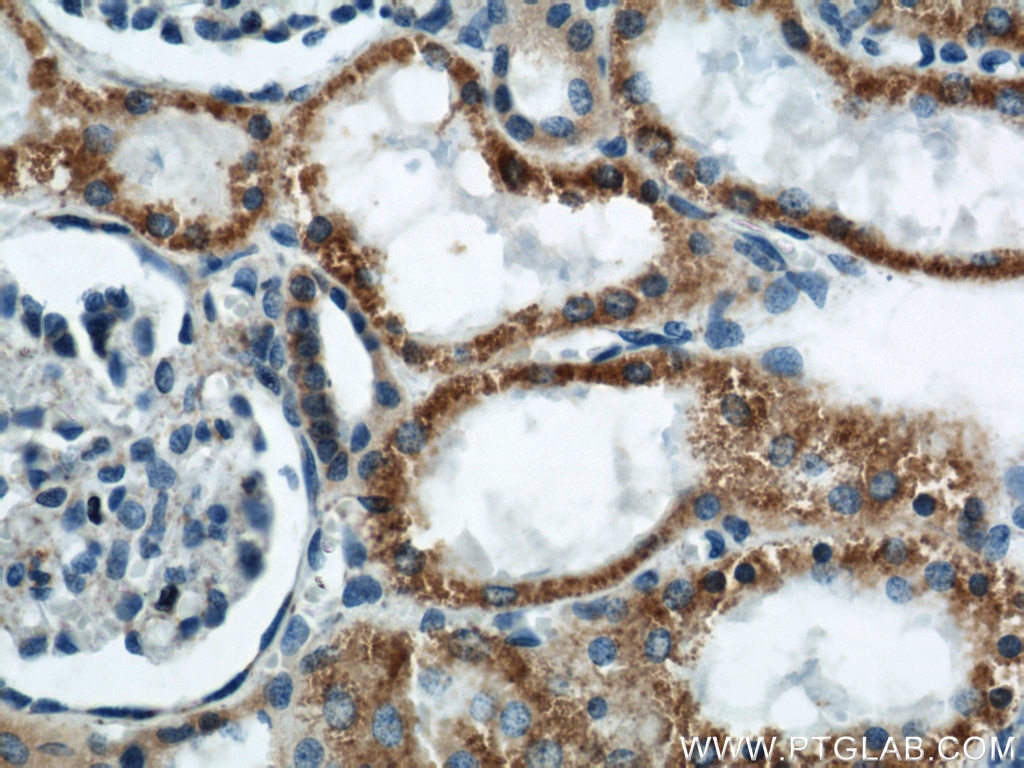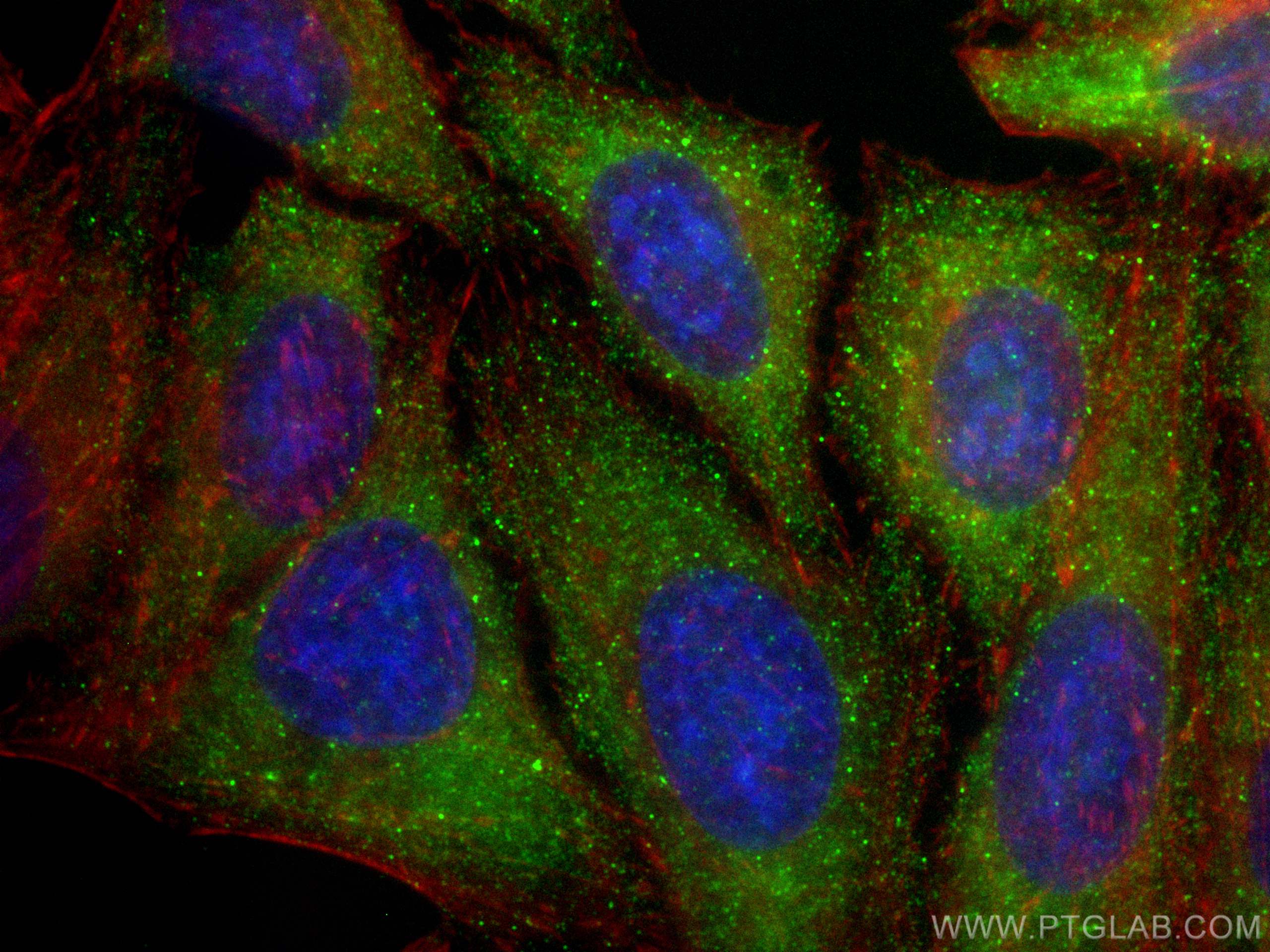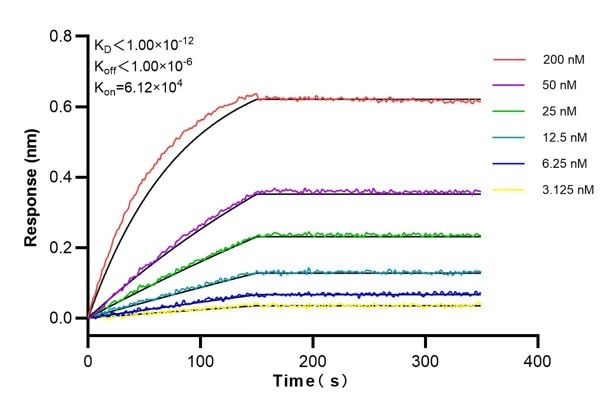- Phare
- Validé par KD/KO
Anticorps Monoclonal anti-APOL1-Specific
APOL1-Specific Monoclonal Antibody for WB, IHC, IF/ICC, IP, ELISA
Hôte / Isotype
Mouse / IgG2a
Réactivité testée
Humain
Applications
WB, IHC, IF/ICC, IP, ELISA
Conjugaison
Non conjugué
CloneNo.
1G12D11
N° de cat : 66124-1-Ig
Synonymes
Galerie de données de validation
Applications testées
| Résultats positifs en WB | tissu plasmatique humain |
| Résultats positifs en IP | tissu plasmatique humain |
| Résultats positifs en IHC | tissu hépatique humain, tissu rénal humain il est suggéré de démasquer l'antigène avec un tampon de TE buffer pH 9.0; (*) À défaut, 'le démasquage de l'antigène peut être 'effectué avec un tampon citrate pH 6,0. |
| Résultats positifs en IF/ICC | cellules HepG2, |
Dilution recommandée
| Application | Dilution |
|---|---|
| Western Blot (WB) | WB : 1:20000-1:100000 |
| Immunoprécipitation (IP) | IP : 0.5-4.0 ug for 1.0-3.0 mg of total protein lysate |
| Immunohistochimie (IHC) | IHC : 1:500-1:5000 |
| Immunofluorescence (IF)/ICC | IF/ICC : 1:200-1:800 |
| It is recommended that this reagent should be titrated in each testing system to obtain optimal results. | |
| Sample-dependent, check data in validation data gallery | |
Applications publiées
| KD/KO | See 2 publications below |
| WB | See 16 publications below |
| IHC | See 2 publications below |
| IF | See 8 publications below |
| IP | See 1 publications below |
Informations sur le produit
66124-1-Ig cible APOL1-Specific dans les applications de WB, IHC, IF/ICC, IP, ELISA et montre une réactivité avec des échantillons Humain
| Réactivité | Humain |
| Réactivité citée | Humain |
| Hôte / Isotype | Mouse / IgG2a |
| Clonalité | Monoclonal |
| Type | Anticorps |
| Immunogène | APOL1-Specific Protéine recombinante Ag2016 |
| Nom complet | apolipoprotein L, 1 |
| Masse moléculaire calculée | 44 kDa |
| Poids moléculaire observé | 39-45 kDa |
| Numéro d’acquisition GenBank | BC017331 |
| Symbole du gène | APOL1 |
| Identification du gène (NCBI) | 8542 |
| Conjugaison | Non conjugué |
| Forme | Liquide |
| Méthode de purification | Purification par protéine A |
| Tampon de stockage | PBS with 0.02% sodium azide and 50% glycerol |
| Conditions de stockage | Stocker à -20°C. Stable pendant un an après l'expédition. L'aliquotage n'est pas nécessaire pour le stockage à -20oC Les 20ul contiennent 0,1% de BSA. |
Informations générales
Human apolipo-protein L1 (APOL1) is a minor component of plasma high density lipoprotein (HDL) particles, acting as an interacting protein of apolipoprotein A1 (ApoA1). The human ApoL protein family was thought to be predominantly involved in lipid transport and metabolism. APOL1 is also involved in host innate immunity against Trypanosoma parasites. Once activated, APOL1 can lyse the parasite and protect human from infection. Genetic variants in APOL1 gene, which are found in African ancestry with high frequency, associate with chronic kidney disease, like focal segmental glomerulosclerosis (FSGS), HIV-associated nephropathy (HIVAN), and hypertensive nephropathy. APOL1 share structural and functional similarities with proteins of the Bcl-2 family and may has roles in apoptosis and autophagy. It is notable that APOL1 exists only in human and a few other primate species, and mouse does not express an APOL1 orthologue. This antibody recognizes the endogenous ApoL1 of 39-45 kDa in blood lysate. This antibody is specific to APOL1.
Protocole
| Product Specific Protocols | |
|---|---|
| WB protocol for APOL1-Specific antibody 66124-1-Ig | Download protocol |
| IHC protocol for APOL1-Specific antibody 66124-1-Ig | Download protocol |
| IF protocol for APOL1-Specific antibody 66124-1-Ig | Download protocol |
| IP protocol for APOL1-Specific antibody 66124-1-Ig | Download protocol |
| Standard Protocols | |
|---|---|
| Click here to view our Standard Protocols |
Publications
| Species | Application | Title |
|---|---|---|
Immunity APOL1 risk variants in individuals of African genetic ancestry drive endothelial cell defects that exacerbate sepsis. | ||
J Am Soc Nephrol Kidney Disease-Associated APOL1 Variants Have Dose-Dependent, Dominant Toxic Gain-of-Function. | ||
Mol Ther Antisense oligonucleotides ameliorate kidney dysfunction in podocyte-specific APOL1 risk variant mice. | ||
Elife Apolipoprotein L-1 renal risk variants form active channels at the plasma membrane driving cytotoxicity. | ||
Avis
The reviews below have been submitted by verified Proteintech customers who received an incentive for providing their feedback.
FH Jonathan (Verified Customer) (11-11-2019) | Works well for WB.
|
